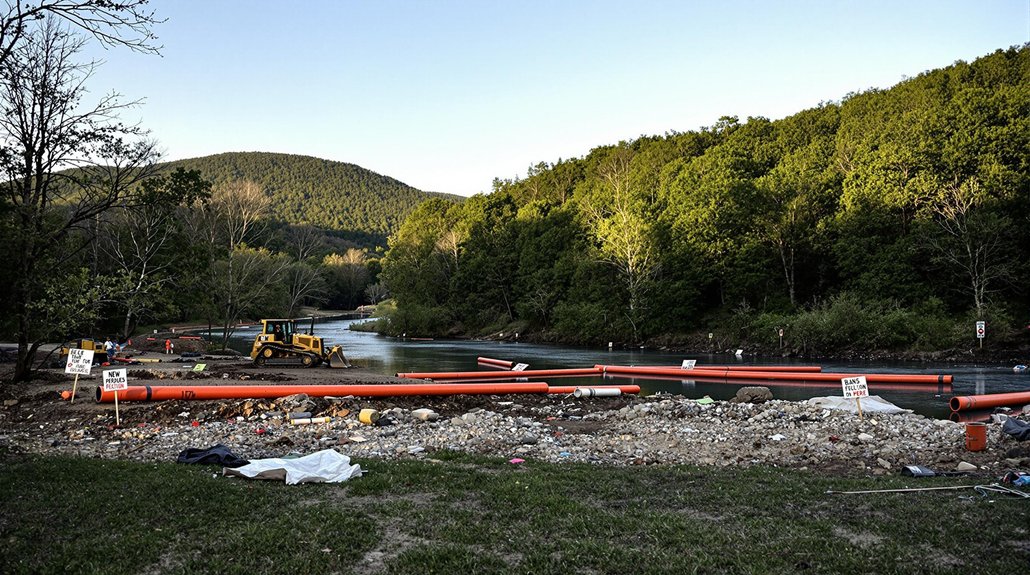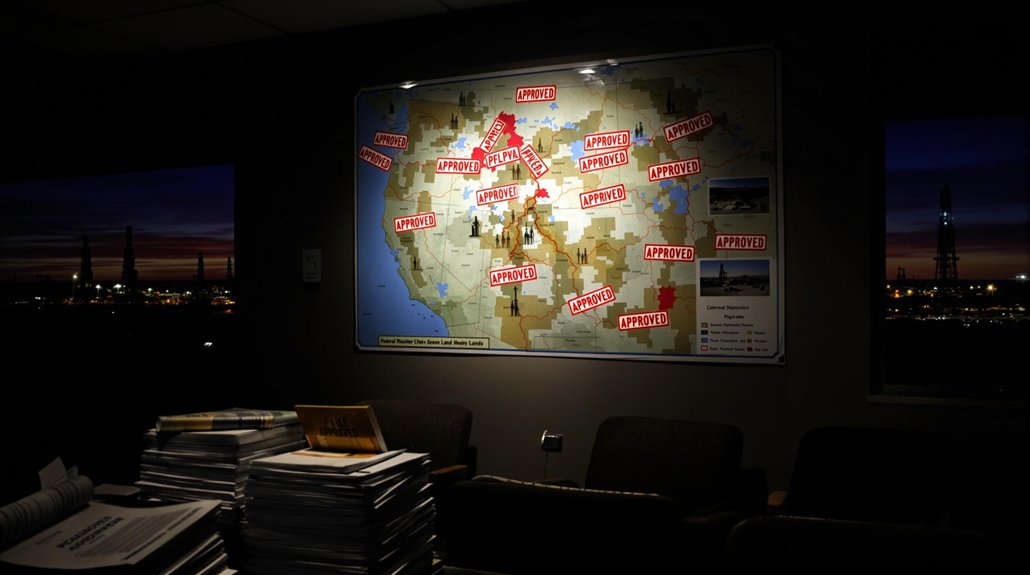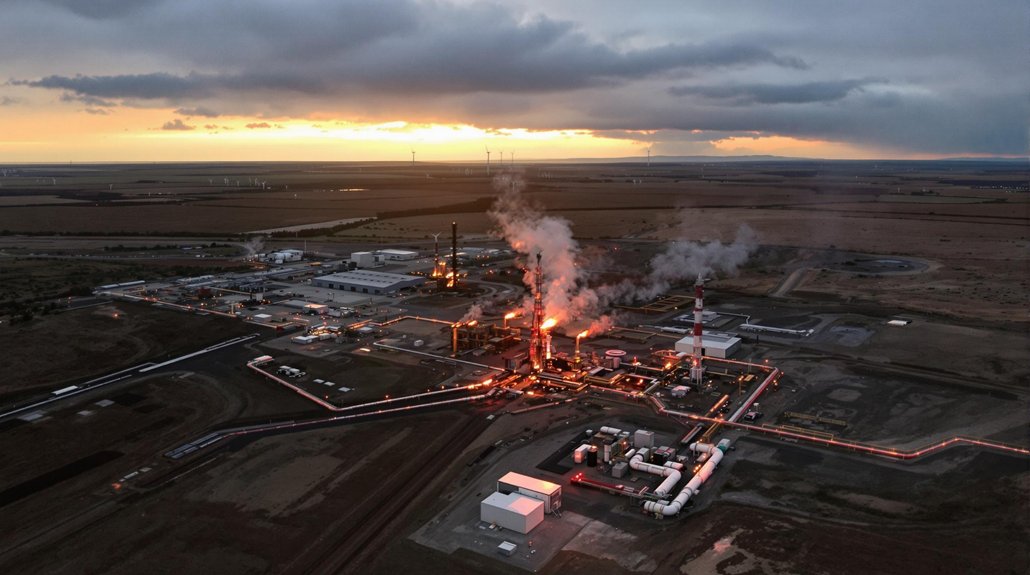Federal regulators approved the Tennessee Gas Pipeline despite significant community opposition. The project, designed to support TVA’s shift from coal to gas, faces legal challenges from environmental groups who claim it violates the Clean Water Act. A U.S. Court of Appeals has temporarily paused construction permits after concerns about threats to local waterways and ecosystems. Residents worry about property damage and increased energy costs as the battle between energy needs and environmental protection continues.
While the Tennessee Gas Pipeline project was intended to support the Tennessee Valley Authority‘s shift from coal to natural gas, it has instead ignited a firestorm of legal battles and community protests across the region. The controversial pipeline faces significant opposition from environmental groups including Sierra Club and Appalachian Voices, who argue it violates the Clean Water Act and threatens local streams and wetlands.
The U.S. Court of Appeals recently paused construction permits, creating uncertainty for the project’s timeline. This legal action came after judges debated whether the pipeline’s construction methods, which include explosive-based trenching, could cause irreparable harm to ecosystems and water quality.
Local community members have voiced strong concerns about potential property damage and ecological risks. Many worry about impacts to the 149 water bodies the pipeline would cross, affecting agriculture and recreation that depends on clean water. These residents have joined forces with environmental organizations to fight the project’s advancement.
Our waterways aren’t pipelines. 149 streams at risk means our farms, fishing, and futures hang in the balance.
The Federal Energy Regulatory Commission (FERC) approved the pipeline despite these objections, a decision critics say prioritizes infrastructure development over environmental and community health. The Southern Environmental Law Center has stepped in to represent the environmental groups in their lawsuit against FERC’s approval. Meanwhile, TVA continues to defend its $9 billion gas expansion plan, which includes this pipeline to support a new natural gas plant replacing a coal-fired unit.
Economic concerns have also fueled opposition, as critics highlight how the massive infrastructure investment might increase household energy costs. They point to volatile fossil fuel prices that could burden affected communities for decades, while locking the region into continued dependence on fossil fuels rather than renewable alternatives. TVA has already implemented rate increases twice in the past year to fund its extensive gas expansion initiatives.
Environmental risks extend beyond local ecosystems to broader climate concerns. Methane gas pipelines contribute to greenhouse gas emissions, potentially undermining climate change mitigation efforts. Critics argue that pursuing renewable energy alternatives instead would support climate resilience and reduce the long-term costs associated with climate disasters. Regulatory agencies have been criticized for insufficient environmental assessments that don’t fully account for these long-term impacts.
As legal challenges continue, the pipeline’s future remains uncertain, with both sides digging in for what promises to be a prolonged battle over the region’s energy future.








